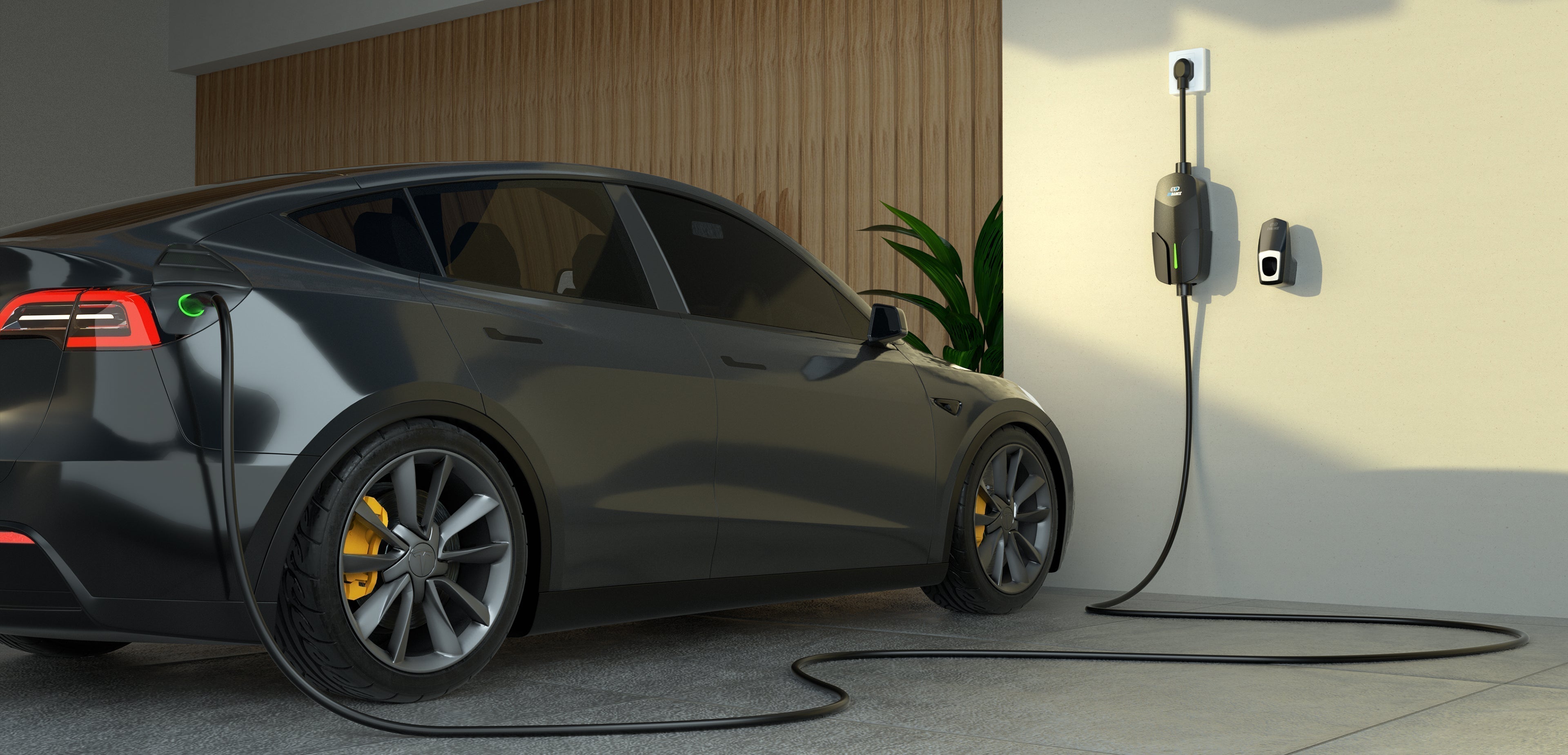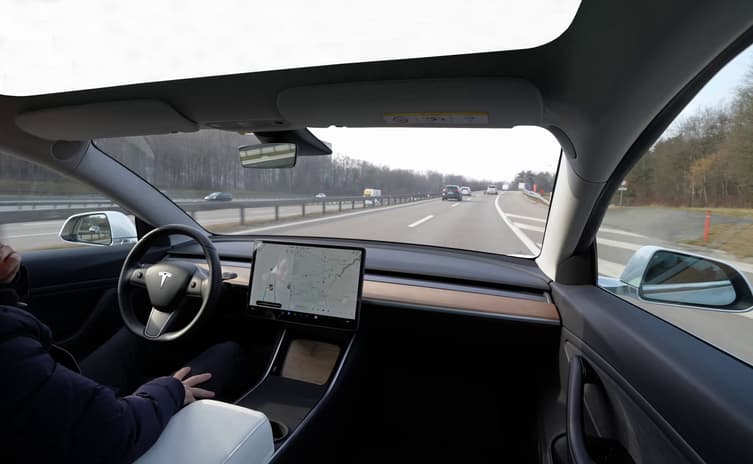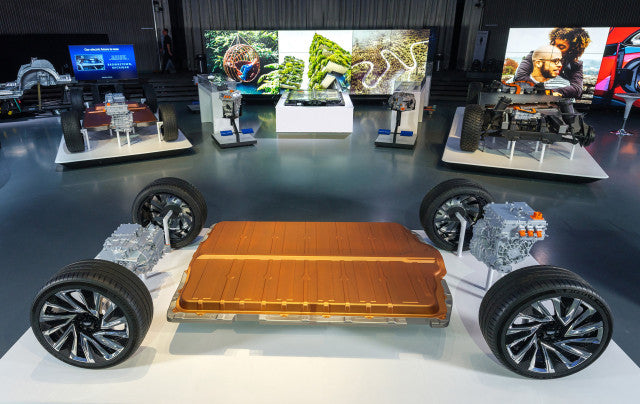As the popularity of electric vehicles (EVs) continues to rise, more homeowners are considering installing at-home EV chargers to ensure convenient and efficient charging. The prospect of a DIY installation might be tempting, especially for those who enjoy tackling home improvement projects. However, installing an EV charger is not as straightforward as it may seem, and there are significant risks and complexities involved. This article will explore whether you can install your EV charger on your own and why hiring a professional is often the best choice.

Understanding the Basics of EV Charger Installation
To fully appreciate the challenges of installing an EV charger at home, it's crucial to understand what the process entails. Installing a Level 2 charger, which is the most common choice for home use, requires more than just plugging in a device. Here are some key components involved:
-
- Most homes are equipped with electrical panels that were designed to handle typical household loads. However, a Level 2 charger requires a significant amount of power, often necessitating an upgrade to your electrical panel. This upgrade ensures that your home's electrical system can safely support the charger without overloading circuits.
-
Installation of a 240V Outlet:
- Unlike standard household outlets that operate on 120V, a Level 2 charger requires a 240V outlet, similar to those used for large appliances like dryers and ovens. Installing a 240V outlet involves working directly with your home's electrical wiring, which can be dangerous if not done correctly.
-
Compliance with Local Codes:
- Electrical work must comply with local building codes and safety regulations. These codes are in place to ensure that installations are safe and reliable. Failing to meet these requirements can result in fines, the need for costly rework, and potential safety hazards.
-
Permits and Inspections:
- Many jurisdictions require permits for electrical work, including the installation of EV chargers. After the work is completed, an inspection by a licensed inspector is often required to ensure that the installation meets all safety standards.
The Risks of DIY EV Charger Installation
While DIY projects can be rewarding, the risks associated with installing an EV charger yourself should not be underestimated. Here are some of the key dangers:

-
Electrical Hazards:
- Working with high-voltage electricity poses serious risks, especially for those without professional training. Mistakes can lead to electrical shocks, fires, or even electrocution. Additionally, improper wiring can cause long-term issues, such as electrical shorts or overloaded circuits, which could result in fire hazards.
-
Code Violations:
- Electrical codes exist to protect homeowners and ensure that installations are safe and functional. DIY installations may not comply with these codes, leading to potential fines, the need for costly repairs, or complications with insurance claims if something goes wrong. In some cases, non-compliance with codes could even void your homeowner's insurance.
-
Damage to Equipment:
- EV chargers are sophisticated pieces of equipment designed to interact seamlessly with your vehicle. Improper installation can damage the charger or your vehicle’s charging system, potentially voiding warranties and leading to expensive repairs. Furthermore, if the charger is not properly connected to your home's electrical system, it may not function correctly, leading to inefficient charging or even failure.
-
Inadequate Power Supply:
- Without the necessary upgrades to your electrical panel, your home may not have the capacity to support a Level 2 charger. This can lead to frequent tripped breakers, inconsistent charging, or damage to your home's electrical system.
-
Unexpected Costs:
- While DIY installations may seem cost-effective initially, unexpected issues such as the need for additional wiring, troubleshooting errors, or repairs can quickly add up. In many cases, these additional expenses can exceed the cost of hiring a professional from the outset.
Why Hiring a Professional is Key
Given the complexities and risks involved, hiring a professional electrician to install your EV charger is a wise investment. Here’s why:
-
Safety Assurance:
- Licensed electricians have the training and experience to safely install your EV charger, minimizing the risk of accidents. They know how to handle high-voltage installations and can ensure that your home’s electrical system is properly equipped to handle the additional load. This not only protects you and your family but also safeguards your property from potential fire hazards.
-
Code Compliance:
- Professionals are well-versed in local electrical codes and regulations. They will ensure that your installation meets all legal requirements, helping you avoid potential fines or legal issues. Additionally, a properly installed charger is more likely to pass any required inspections, giving you peace of mind that your setup is safe and reliable.
-
Warranty Protection:
- Many EV chargers come with warranties that require professional installation. If you attempt to install the charger yourself and something goes wrong, you may void the warranty, leaving you responsible for any repairs or replacements. By hiring a certified electrician, you ensure that your warranty remains valid, protecting your investment in both the charger and your vehicle.
-
Efficiency and Reliability:
- A professional installation ensures that your charger works efficiently and reliably. Electricians can optimize the installation for your specific home setup, ensuring that your charger delivers the expected performance. This means faster, more consistent charging and fewer issues down the road.
-
Peace of Mind:
- Perhaps the most significant benefit of hiring a professional is the peace of mind it brings. Knowing that your charger has been installed correctly and safely allows you to enjoy the convenience of at-home charging without the worry of potential issues. You can rest assured that your EV will be ready to go whenever you need it, without the hassle of troubleshooting DIY mistakes.
Additional Considerations When Hiring a Professional
When deciding to hire a professional for your EV charger installation, there are a few additional factors to consider:
-
Choosing the Right Electrician:
- Not all electricians have experience with EV charger installations, so it's important to choose someone who is familiar with this type of work. Look for electricians who are licensed, insured, and have positive reviews or references from previous clients. Additionally, some manufacturers may have a list of recommended or certified installers who are trained to work with their specific products.
-
Cost Estimates:
- Before proceeding with the installation, it's a good idea to get multiple estimates from different electricians. This allows you to compare prices and services, ensuring you get the best value for your money. Be sure to ask about any potential additional costs, such as permits, inspections, or electrical panel upgrades, so you have a clear understanding of the total investment.
-
Scheduling and Coordination:
- Professional installations typically require coordination with your utility company, especially if an electrical panel upgrade is needed. A skilled electrician can handle this process for you, ensuring that everything is scheduled and completed efficiently. This coordination helps minimize disruptions to your daily routine and ensures that the installation is completed as quickly as possible.
-
Long-Term Support:
- Many professional electricians offer ongoing support or maintenance services after the installation is complete. This can be particularly valuable if you encounter any issues with your charger in the future or if you decide to upgrade your charging equipment. Having a trusted professional on hand ensures that any problems are addressed promptly and effectively.
Conclusion: The Professional Advantage
While the idea of saving money by installing your EV charger yourself may be appealing, the risks and potential costs far outweigh the benefits. From ensuring safety and code compliance to protecting your warranty and guaranteeing reliable performance, hiring a professional electrician is the best way to go.
Investing in a professional installation not only ensures that your charger is set up correctly but also provides peace of mind knowing that your home and vehicle are in good hands. Whether you're a first-time EV owner or looking to upgrade your charging setup, choosing a licensed electrician is a smart decision that will pay off in the long run.
If you're considering an at-home EV charger installation, reach out to a licensed electrician today. They'll provide the expertise needed to get the job done right, so you can enjoy the convenience of charging your EV at home with confidence.
Stay safe, stay compliant, and keep your EV powered up with a professional installation.
Recommended Reading: Portable EV Charger - Save on Installation Costs








Share:
Choosing the Right Extension Cord for Charging Your Electric Vehicle